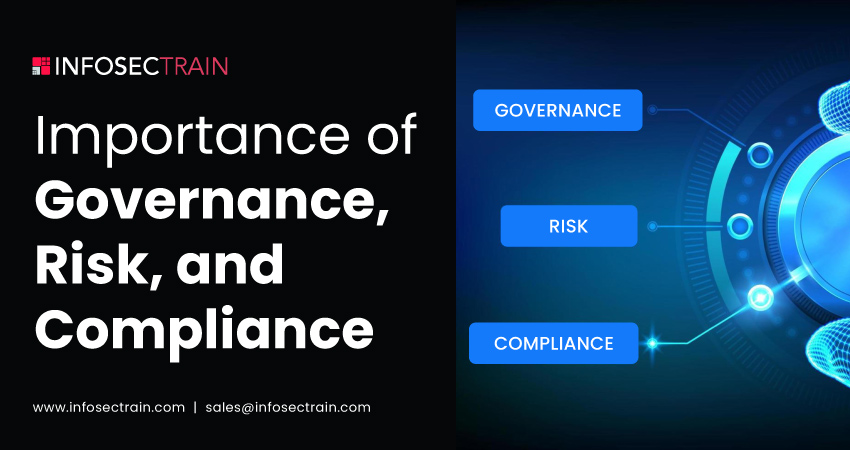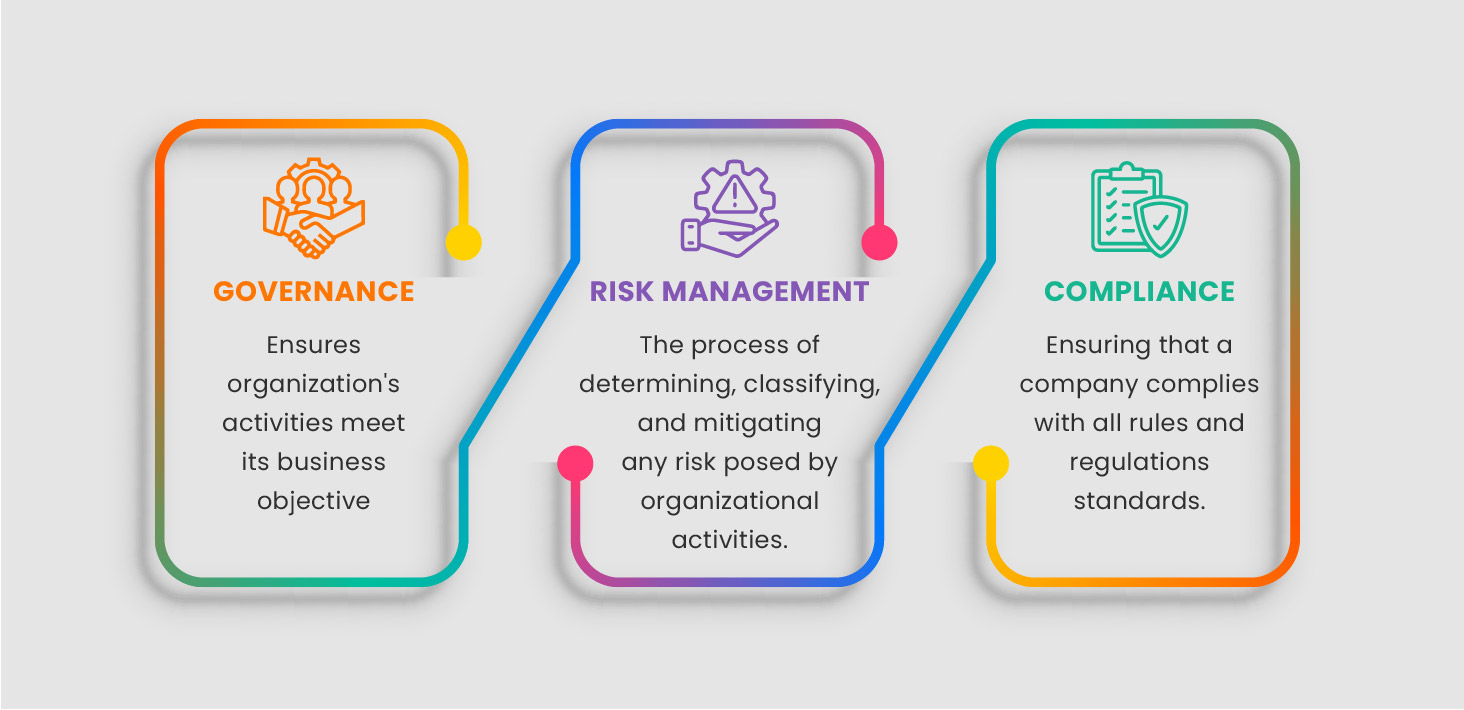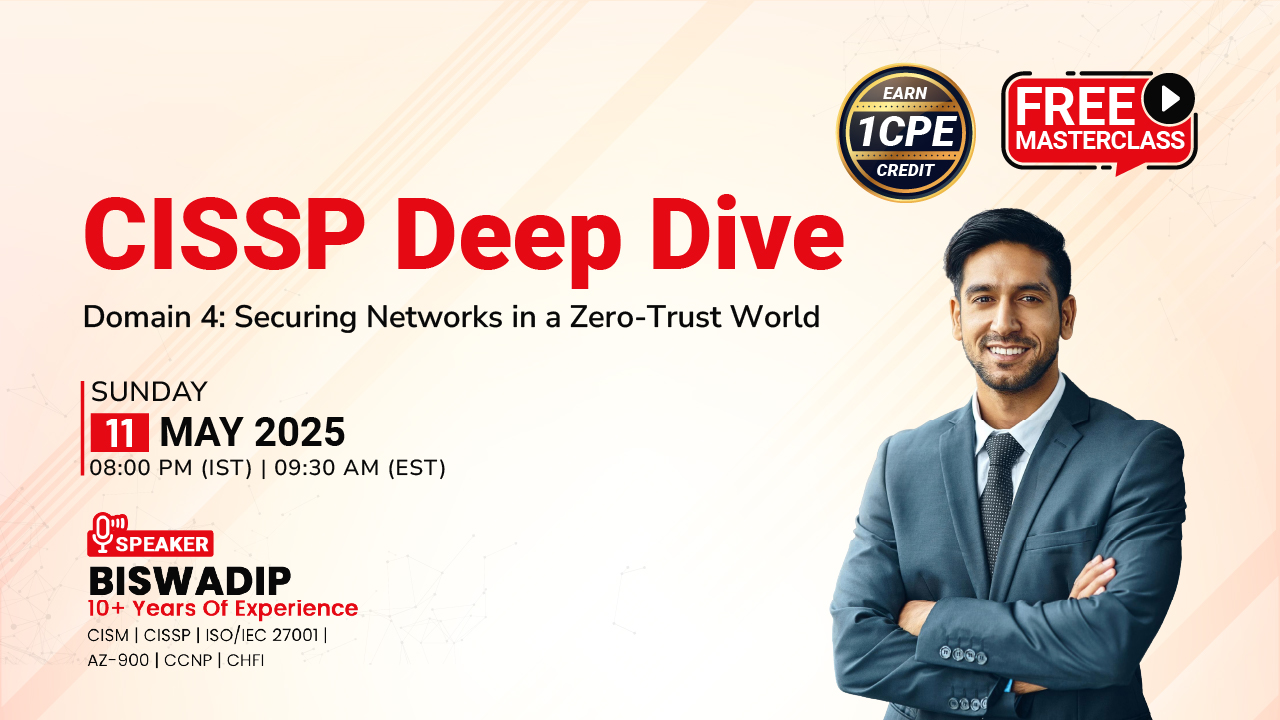Importance of Governance, Risk, and Compliance
Risks are evolving quickly on a worldwide scale as a result of technology and development. The number of new business opportunities in the digital economy is expanding fast but also becoming more challenging due to the rising cyber threats. Due to the complexity of business models and processes across the enterprise, Governance, Risk, and Compliance (GRC) management processes and procedures are extremely important.

So, in this article, we will discuss what Governance, Risk, and Compliance (GRC) is and why it is crucial for an organization?
Table of Contents
What is GRC?
Importance of Governance, Risk, and Compliance (GRC)
Benefits of Governance, Risk, and Compliance (GRC)
What is GRC?
GRC, or Governance, Risk, and Compliance, is an integrated approach to managing an organization’s policies, procedures, and regulations. It involves aligning business activities with strategic goals, assessing and reducing risks, and ensuring compliance with laws and regulations. GRC frameworks aim to enhance decision-making, promote transparency, and prevent legal and financial setbacks. GRC helps streamline processes, reduce vulnerabilities, and foster a culture of accountability by providing a holistic view of an organization’s operations. It spans various industries, enabling companies to navigate complexities, protect assets, and sustain long-term success through effective governance, risk management, and compliance measures.

Governance: The term “Governance” describes implementing rules and policies, tracking performance and controls, managing resources, assessing organizational results, ensuring accountability, and ensuring their execution.
Risk Management: Risk management process is used to detect, evaluate, monitor, and manage risks that could disrupt daily operations and impede the attainment of strategic goals. Through the development of industrial objectives and governance processes, it implements methods to reduce uncertainty and risk. It includes:
- Risk Identification: This process involves identifying potential risks that could impact the organization. These risks might be internal or external and may affect various aspects of the business, including financial, operational, technological, and reputational areas.
- Risk Analysis: Once risks are identified, they are analyzed to understand their nature, origins, and potential impact on the organization. Risk analysis assesses the likelihood of each risk occurring and its potential severity.
- Risk Evaluation: This involves comparing the analyzed risks against the organization’s risk appetite and tolerance levels to determine which risks are acceptable and which require mitigation.
- Risk Treatment: Finally, risk treatment involves developing and implementing strategies to manage identified risks. This can include avoiding, transferring, mitigating, or accepting risks, depending on their evaluation.
Compliance: The collection of organizational practices, policies, and procedures known as compliance. It supports adherence to laws, rules, regulations, requirements, and guidelines, whether set up internally or applied externally. It ensures that organizational operations are carried out as effectively as feasible and ensures that compliance regulations are continuously followed.
Importance of Governance, Risk, and Compliance (GRC)
We have seen in recent years that every organization’s reputation has significantly suffered due to the rising number of cybersecurity risks, threats, and vulnerabilities. Businesses require a mechanism to efficiently identify and manage critical organizational activities as business models and functions become more complex. Companies are considering automated technologies to manage risk, compliance regulations, and implement governance. GRC is a framework that unifies the governance, risk management, and compliance processes for laws, rules, regulations, and policies. The GRC framework offers a single source of business information and enables process automation, precise risk assessment, and cost-effectiveness. An efficient GRC approach can help an organization function more efficiently by reducing time and effort spent on risk awareness and encouraging well-informed decision-making, which assists in mitigating threats and preventing reputational and financial losses.
Benefits of Governance, Risk, and Compliance (GRC)
GRC strengthens a company’s ability to respond strategically to risks and supports continued compliance with necessary standards, rules, policies, and laws. Many businesses utilize GRC as a tool to assist in achieving their objectives. The main GRC advantages are listed below.
- Transparency: GRC enables the organization’s owners to have access to and control over the content they need to comprehend the profile of the business unit and any relevant risks and challenges.
- Enhanced Availability: GRC increases the availability of data and accuracy of risk assessments.
- Enhanced Visibility: GRC enhances access to risk information while increasing awareness of risks, threats, and vulnerabilities.
- Optimization: Through GRC, organizations can learn how to streamline value-added tasks while eliminating non-value-adding activities from daily operations. This can assist organizations in minimizing wasted time and money, as well as preventing undesired variations.
- Stability: A flexible and scalable control environment is made possible by establishing GRC, which resolves short-term and long-term risk exposure.
- Reduced Cost: Cost saving is one of GRC’s significant benefits. Effective GRC activities can assist organizations in more effectively defining their business rules, reviewing controls, and projecting future growth, which can result in lower costs. Maintaining redundant controls, tests, problems, solutions, and reporting across several disciplines also lowers maintenance costs.
- Risk Reduction: The GRC strategy lowers risk throughout the entire organization, including operational, business, financial, and security risks. It reduces the chance of human mistakes while streamlining daily tasks.
- Consistency: GRC strategy increases decision-making agility and ensures better goal alignment with the organization’s purpose, vision, and values.
To learn more about this domain, you can explore our related articles:
- Best Practices for GRC Framework
- What is GRC (Governance, Risk, and Compliance)?
- Attributes to Look for in a GRC Platform
- Top GRC Tools for Your Organization
- Governance, Risk, and Compliance (GRC) Interview Questions
How Can InfosecTrain Help You?
The objective of GRC is to provide a systematic approach for risk and compliance management teams so businesses can operate more effectively. If you are curious to understand the significance of governance, risk, and compliance services, CISM certification training courses. Our highly skilled and experienced trainers will conduct the training sessions, and they will guide you whenever you have queries.
TRAINING CALENDAR of Upcoming Batches For RSA Archer
| Start Date | End Date | Start - End Time | Batch Type | Training Mode | Batch Status | |
|---|---|---|---|---|---|---|
| 05-Apr-2025 | 04-May-2025 | 19:00 - 22:00 IST | Weekend | Online | [ Open ] |







 1800-843-7890 (India)
1800-843-7890 (India)